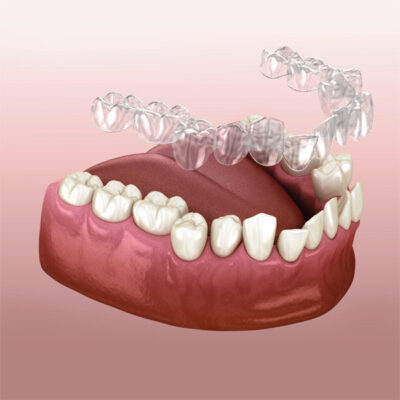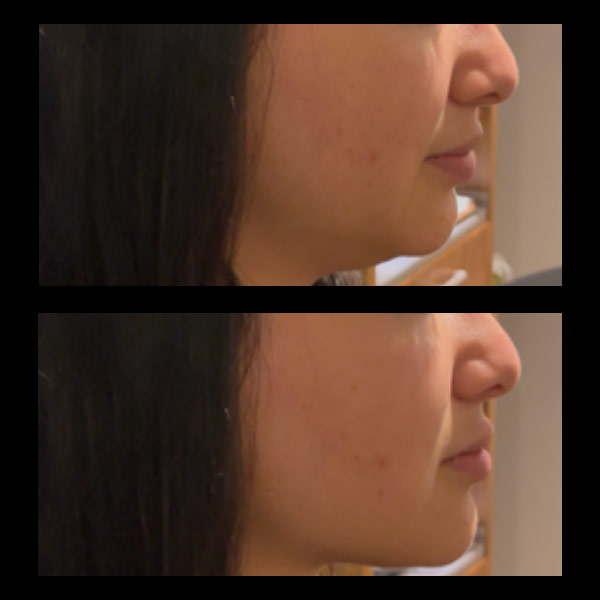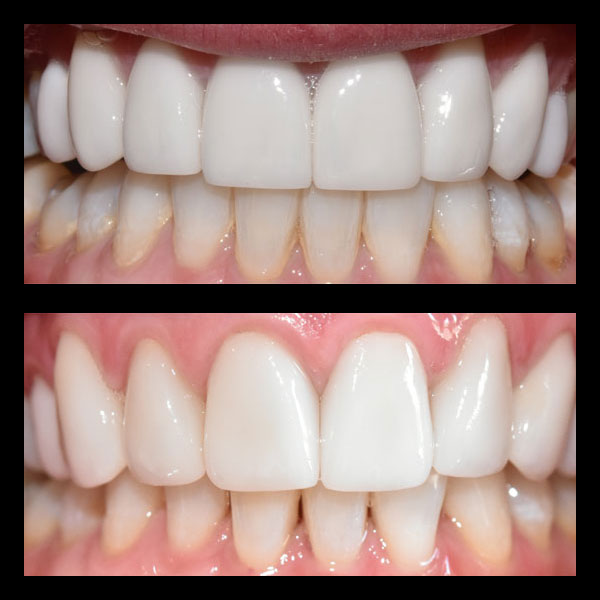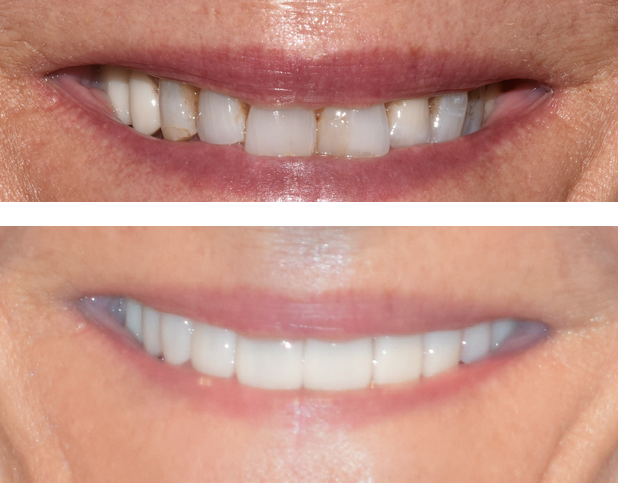Consider the pivotal role your mouth plays in your daily life. Have you ever stopped to appreciate its significance? From the moment you wake up to the moment you drift off to sleep, your mouth is constantly at work. It lets you breathe, communicate, is the gateway to your smile, the instrument of your laughter, and the means through which you show emotion. It is also the first step to proper digestion and breaking down nutrients essential to your body’s health.
Often, we take the function of our mouth for granted. However, when something feels off, like a misalignment in the way your teeth come together, it’s a sign that shouldn’t be ignored. This sensation, known as bite instability, is more than just a minor annoyance. It’s a condition where your teeth don’t fit together correctly when your jaws are closed, leading to discomfort, challenges in chewing, and potentially signaling deeper dental issues if not addressed.
A Closer Look at Bite Instability
 “Bite instability” refers to the misalignment of teeth when the jaw is closed. This imbalance can cause discomfort while chewing and speaking. This instability occurs when teeth do not align, often initially presenting as minor discomfort during meals. However, it’s not a small issue – it could point to malocclusion, a condition where the teeth do not fit together correctly.
“Bite instability” refers to the misalignment of teeth when the jaw is closed. This imbalance can cause discomfort while chewing and speaking. This instability occurs when teeth do not align, often initially presenting as minor discomfort during meals. However, it’s not a small issue – it could point to malocclusion, a condition where the teeth do not fit together correctly.
Malocclusion can occur for a variety of reasons, such as crooked teeth eruption or unsuccessful dental procedures. It can lead to more than just difficulty in enjoying certain foods. It can cause teeth wear, speech difficulties, and even impact self-esteem.
The Risks of Ignoring Bite Instability
Discomfort while eating or speaking may not seem alarming, but neglecting bite instability can lead to serious complications. Consider your teeth as gears in a machine; if one doesn’t fit, the entire system can malfunction. Similarly, misaligned teeth can trigger a domino effect of oral health deterioration.
One such issue is bruxism or teeth grinding. While it may seem harmless, constant grinding can wear down teeth over time, causing sensitivity and possible tooth loss. Extreme cases can lead to temporomandibular joint disorder (TMD), a painful condition affecting the joint connecting your jaw to your skull. Misaligned teeth also increase the risk of cavities and periodontal disease, as they can be harder to clean, making them a breeding ground for harmful bacteria.
The general well-being is significantly influenced by the condition of oral health. Therefore, it’s important not to overlook bite instability. Instead, be proactive about your oral health. Seek professional advice to understand the situation better and find the most suitable treatment. After all, a healthy mouth contributes to a healthy body, and a confident smile can make a world of difference.
Recognizing Bite Instability
Everyone’s oral structure is unique, making the signs and symptoms of bite instability different for each individual. Some may not feel immediate discomfort, while others might struggle with routine activities like eating and speaking. Recognizing the presence of bite instability can help you proactively manage your oral health.
Identifying Bite Instability
Identifying bite instability requires a keen awareness of subtle changes in your mouth. Issues may arise like difficulty in chewing, biting food, or when your teeth don’t fit together as they once did. You may notice discomfort or an abnormal bite when relaxed or not consciously controlling your jaw position. Observing these changes is vital, even if they don’t cause immediate discomfort.
Unexpected shifts in your jaw position or frequently biting your inner cheek or tongue could be signs of improper teeth alignment. Rather than dismissing these signs, consider them as vital indicators from your mouth.
Visible Indicators of Bite Instability
Some signs of bite instability are more apparent than others. Changes in the alignment of your teeth, such as crowding or overlapping, could signal bite instability. Misaligned teeth may also appear longer due to excessive wear or gum recession.
Facial changes can also be a telltale sign. An asymmetrical face or changes in your jawline could indicate bite instability. Headaches, earaches, or facial pain, although not visible, are often associated with misaligned teeth and bite instability. Paying attention to your body is essential as often our health clues are quite evident.
Recognizing these signs and symptoms is critical for maintaining your oral health. Addressing these changes with prompt expert advice can prevent further complications and ensure a bright, healthy smile.
Don’t Overlook an Unstable Bite
Dismissing bite instability as a mere inconvenience can lead to a series of oral health issues, including jaw discomfort, uneven tooth wear, and even long-term damage to your teeth and gums. If left unchecked, these issues can escalate into more severe conditions.
Bruxism: More Than Just a Habit
Bruxism, or teeth grinding and clenching, often occurs during sleep or under stress and is a common result of untreated bite instability. Over time, constant grinding can wear down your teeth, leading to sensitivity and potential damage. Excessive grinding can cause your teeth to flatten, making them prone to cracks and breaks. This can result in discomfort and require expensive dental treatment to repair.
Temporomandibular Joint Disorder (TMJ): The Painful Result
Bite instability can also trigger temporomandibular joint disorder (TMJ), a condition that affects the joints connecting your jaw to your skull. The misalignment caused by bite instability puts extra strain on these joints, leading to symptoms such as jaw pain, headaches, earaches, and difficulties in opening the mouth. Furthermore, TMJ can result in a clicking sound when moving the jaw, discomfort during eating, and changes in your teeth alignment.
Cavities and Periodontal Disease: The Hidden Dangers
Misaligned teeth can increase the risk of cavities and periodontal disease. They provide hidden spots where food particles can accumulate, turning your mouth into a breeding ground for bacteria. The bacteria can also attack your gums, which is characterized by red, swollen gums that bleed easily. If left untreated, periodontal disease can result in tooth loss and has been linked to systemic conditions like heart disease and diabetes.
Ignoring bite instability can have serious repercussions beyond just oral health that affect not only your smile but also your overall quality of life. Bite instability is a significant health concern that warrants immediate attention.
Bite Instability Treatment Options
At Incredible Smiles, we recognize that every guest has a unique oral structure, and bite instability can vary greatly. First, we assess your bite to uncover the conditions causing bite instability before choosing the best treatment strategy.
Invisalign Clear Aligner Therapy
Invisalign clear aligner therapy is a popular treatment for bite misalignment. Unlike traditional braces, Invisalign aligners are nearly invisible, providing a discreet treatment process. These aligners slowly shift the teeth into the correct position, solving bite instability over time. They are removable for eating and brushing, which makes maintenance easy and the treatment experience more comfortable.
Porcelain Veneers for Bite Correction
Porcelain veneers are another effective solution for those with minor bite instability. Made of thin porcelain shells, veneers attach to the front of the teeth to enhance their appearance and correct minor bite issues. Dr. Priya Uppal carefully designs these veneers to match the color, size, and shape of your natural teeth, ensuring a seamless integration with your smile. This procedure is minimally invasive, and the results can boost not only your bite but also your confidence in your smile.
Dental Implants
Dental implants are particularly effective for guests with missing teeth causing bite instability. These implants replace the root of the missing tooth and serve as a base for a replacement tooth. They are designed to match your natural teeth, providing a natural look and feel. Dental implants offer a long-term solution, improving the functionality of your teeth and correcting bite instability. They also help maintain healthy bone structure in your jaw, supporting overall oral health.
Bite Guards Help Manage Bite Instability
Bite guards, also known as night guards or occlusal splints, are a common and effective treatment option for those experiencing bite instability due to teeth grinding or clenching, a condition known as bruxism. These custom-fitted devices are worn over the teeth during sleep to provide a protective barrier, preventing the upper and lower teeth from coming into direct contact. This not only helps to alleviate the pressure and strain on the jaw muscles and joints but also protects the teeth from excessive wear and potential damage.
Treating bite instability not only improves oral health but also boosts your confidence and overall well-being. Early detection and treatment can prevent severe oral health problems down the road.
Enhancing Your Smile: Take the Next Step
At Incredible Smiles, we believe that a radiant smile starts with a solid foundation. If you’ve noticed signs of bite instability, it’s important to address the root cause to ensure long-term stability and health. Our team, led by Dr. Priya Uppal, is dedicated to providing personalized treatment options that cater to your specific needs, all within a welcoming and comfortable environment.
We offer a range of advanced treatments, including Invisalign, porcelain veneers, and dental implants, aimed at not just correcting bite issues but enhancing your overall smile. Post-treatment, we continue to support you with regular health evaluations and guidance on maintaining optimal dental hygiene.
Your oral health is a key component of your overall well being. By addressing bite instability promptly, we can help prevent further dental issues and improve your quality of life. Contact Incredible Smiles today to start your journey towards a healthier, more confident smile.








